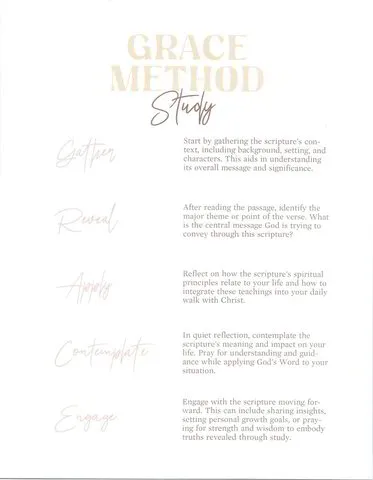The idea that our good works can take us to Heaven is a common misconception. We often think that if we do enough good deeds, donate to the right charities, and lead a generally moral life, we’ll be greeted with open arms at the Pearly Gates. However, this isn’t the case – no amount of effort on our part can get us into Heaven. Today, we’ll explore why our good works can’t get us into Heaven, why God created it this way, and what that means for us all.
WHY GOOD WORKS CAN’T GET YOU INTO HEAVEN
Good works can’t get you into heaven simply because salvation is only possible through the grace of Jesus Christ. Trusting in Jesus saves one from sin and death, according to Scripture. John 3:16 says, “For God so loved the world that he gave his one and only Son, that whoever believes in him shall not perish but have eternal life.” God’s grace is the only way for us to receive salvation. It is not by our own works that we obtain it, but instead through His unconditional love and gift of mercy. The Bible tells us, “For by grace you have been saved through faith, and that not of yourselves, it is the gift of God, not of works, lest anyone should boast.” Ephesians 2:8-9.
Salvation Is Not A Goal But A Gift
There is no amount of effort or charitable acts we could do that would gain us access to Christ’s salvation. The only requirement we have is to accept his gift. This reminds me of the story of Rosie, who had been struggling financially for most of her life. She had lost her job and was living paycheck to paycheck. One day, she stumbled upon a small shop with a sign outside reading “Free Gifts.” Curious, she went inside to investigate and found an older man behind the counter. He smiled warmly and said, “I have something special for you – it’s free! Before Rosie could object, the older man handed her a small bouquet of wildflowers. She thanked him profusely but tried to give him money in return anyway. The gentleman shook his head and kindly insisted, “Nothing comes for free – accept my gift with no strings attached.”
Jesus’s sacrifice on the cross was a once for all gift. He offered Himself as a perfect and complete sacrifice for the sins of humanity. His death marked a new era of hope and forgiveness, providing a way to eternal life through repentance and faith. As Romans 5:8 states, “But God demonstrates his own love for us in this: While we were still sinners, Christ died for us.” Jesus’s work on the cross is essential to salvation; no amount of good deeds can redeem mankind from their sins. Thus, accepting Jesus’s grace is a crucial part of the believer’s spiritual journey.
FAITH IN SELF VS. TRUST IN GOD
It’s nice to do good things. Helping those in need, giving to charities, or holding the door or giving compliments to strangers. But as Ephesians 2:10 tells us, “We are His workmanship, created in Christ Jesus for good works, which God prepared beforehand that we should walk in them.” Believers are saved for good works, not by good works. These works are an outgrowth of our relationship with Him. If we’re not careful, we can start to believe that our charitable acts level the playing field with God. Somehow, doing “good deeds” justifies our standing with God.
The Pharisee and the Tax Collector
Luke 18:10-14 provides one example of this. “Two men went up to the temple to pray, one a Pharisee and the other a tax collector. The Pharisee stood and prayed thus with himself, ‘God, I thank You that I am not like other men—extortioners, unjust, adulterers, or even as this tax collector. I fast twice a week; I give tithes of all that I possess.’ And the tax collector, standing afar off, would not so much as raise his eyes to heaven, but beat his breast, saying, ‘God, be merciful to me a sinner!’ I tell you, this man went down to his house justified rather than the other; for everyone who exalts himself will be humbled, and he who humbles himself will be exalted.”
The Pharisee was a religious leader who felt confident he could save himself without any help from God. He fasted, tithed, and prayed regularly, yet remained unrepentant when bringing his offering to the Lord. On the other hand, the tax collector placed all his hope and trust in Jesus for His salvation. He humbled himself before God and asked for forgiveness for his sins. This man relied on Jesus’ grace, repentance and faith to redeem him, not good deeds. While good works can certainly, please God and show faith, they can’t get us into heaven.
PITFALLS OF PLACING FAITH IN WORKS
Just as the Pharisee, we too can fall into the trap of believing our good works make us acceptable in the sight of God. Unfortunately, We can be led away from faith in Jesus Christ and towards relying on our own efforts for redemption.
Some of the pitfalls of placing faith in works include:
- Not recognizing God’s grace and mercy – When relying on our own efforts, it’s easy to forget that salvation is only found through repentance and belief in Jesus Christ.
- Misplaced trust – Putting our trust in our own abilities rather than in Jesus can lead to arrogance and self-righteousness.
- Refusing to accept the truth – Trying to rely on our works for redemption can cause us to resist accepting what God has said about his plan for salvation.
- Straining relationships with God and others – If we place too much emphasis on earning our way into a relationship with God, we may miss out on an intimate connection with him or neglect building meaningful relationships with other believers.
JESUS FULFILLED THE LAW AND WORKS
Jesus fulfilled the law and works by living a perfect life to demonstrate God’s love. He did not break any of God’s laws. Instead, He embodied them perfectly in every action. He said in Matthew 5:17, “Do not think that I have come to abolish the Law or the Prophets; I have not come to abolish them but to fulfill them.” By His perfect life and death, Jesus fulfilled God’s law and bridged the gap between Him and us. God gave the Law to show our sins, and provide a way to obey Him. Romans 3:19-20 says, “Now we know that whatever the law says, it says to those who are under the law, that every mouth may be stopped, and all the world may become guilty before God. Therefore, by the deeds of the law no flesh will be justified in His sight, for by the law is the knowledge of sin.”
Works done out of love for God and neighbor are necessary to our faith walk, but they cannot save or justify us. Unlike relying on our own works, Jesus offers us the path to redemption through his perfect gift of sacrifice and grace. He has fulfilled the Law on our behalf and invites us to enter into an intimate relationship with Him through faith. When we rely on Jesus, it sets us free from striving for perfection or trying to earn salvation.
GOD’S GRACE IS SUFFICIENT
As we’ve learned today, our good works can’t get us into heaven. No matter how much good we do, it will never be enough without submitting to the grace of Jesus. By acknowledging the importance of this truth, we can take comfort that no matter what we experience in life – whether joy or pain – our salvation is entirely found in one place: a yielded heart trusting fully in His goodness and love.
If you have enjoyed today’s post at His Spoken Word, please comment below to share your thoughts on this post.


